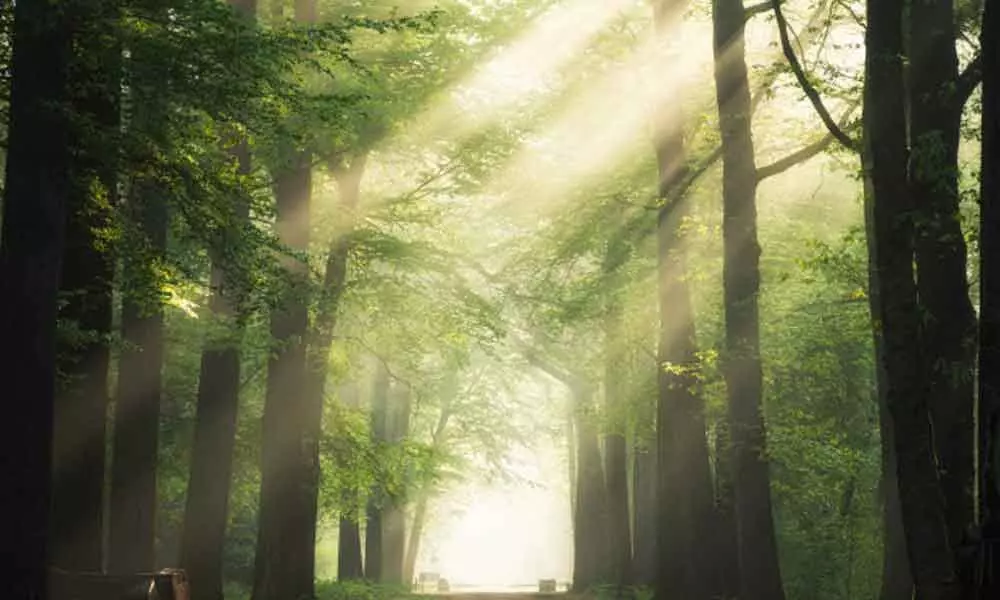Losing touch with Mother Nature

Losing touch with Mother Nature
The atmospheric temperature in Palakkad district of Kerala is soaring high and the heavy summer showers provided great relief. When the parched earth gets the summer showers to quench its thirst, there arises a sweet smell.
The smell comes from the earth when the first raindrops fall on the scorched soil. I don't think that there is anybody who doesn't like the smell. And when the monsoon starts, the rain has no smell but only music and magic.
Within days, the rain darns the summer ravaged greenery of the earth. The rain helps the earth to cover with its beautiful dress of verdure. The creepers and the thickets appear from nowhere. The trees and plants get renewed energy, foliage and beauty. What a magic! With a sudden touch of its magic wand, the rain performs myriad wonders.
Even if the torrential rain is fearsome, at night it is a lullaby which no other music can provide us. If there is pouring rain in the early morning, no school child loves to arise and go to school. They love to lie lazily on the bed under the blanket putting their hands between their legs and listening to the music of the rains.
In my childhood, we have had many spacious open places in our village. The most spacious of them consisted of level plains or meadows, little hillocks and rocks, full of black palm trees, very big mango trees and all around the open place, along the fences of the adjacent compounds, there were plenty of large bamboos clusters.
The place used to be both our playground and the grazing ground of our cattle. And the grassland was the habitat of many ground-nesting birds including lapwings and quails. And to see this place when it rains was also an ecstatic experience.
The sound of the rain drops falling on the palm leaves, the swinging of the bamboos in the wind and the sound the swinging makes, the bowing down of the rain-drenched bamboo tops, and the clearly visible slanting raindrops all over the meadows were really used to captivate and thrill me.
One of the many wonders the rain used to perform in my village was to fill the paddy fields with enough water to be ploughed for paddy transplantation. Oxen would be yoked, and ploughs would be tied to the yokes and when the pairs of oxen were made to move cutting open the fertile soil with the plough, there would prevail the smell of the soil which a farmer loves more than his life.
Rain was the lifeblood of the farmer who loved paddy and paddy cultivation. And we the children were not afraid of the rain—whether it was drizzling or pouring or torrential. I used to play in the drizzling rain, in the pouring rain and in the torrential rain with thunder and lightning. I am farmer's son and the rain never made me and my friends sick.
Sustainable cultivation in my village was forced to give way to cash crops and real estate business and the lower middle class people like me landed on the shore of the government 'service' sector in our struggle to survive.
Now I am 'secure' as I am in the government service! And our organic relationship with the soil, rain and Nature has been snapped. We don't allow our children to play in the rain as we as children were allowed to. We say that the rain will make our children sick.
In the past, the rain was a part of our life, now it is not. Children today don't see how paddy is sown, how it sprouts, how paddy stalks come out of the plants, how it is harvested, how it is threshed.
They see the rice, but they don't know from where it comes and how it comes. They only know that it is purchased and they think anything can be purchased if you have cash. They don't know that we will be able to buy the rice only if somebody produces it, only if it is cultivated, only if there are farmers and only if it rains.








